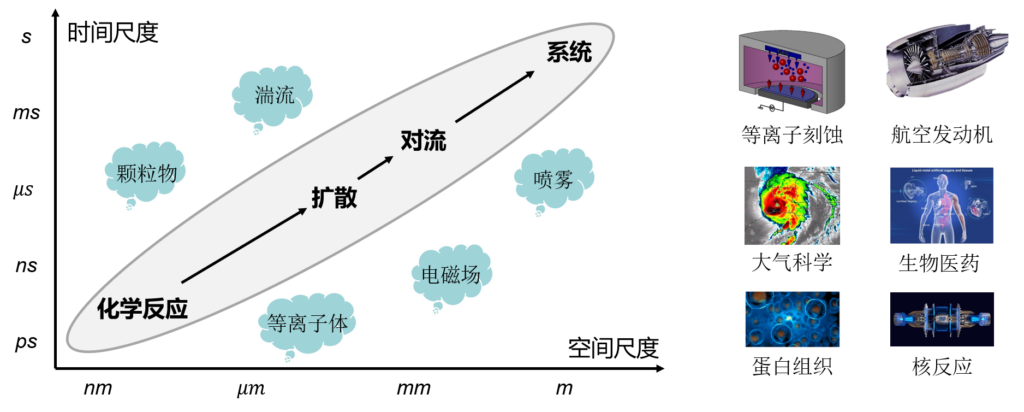We are working on a broad range of topics about multiscale reacting flows. Our research focuses on physics and data-driven modeling for reacting flows, specifically including:
AI and Physics-driven algorithms for reacting flows simulations
Background: Reacting flow simulations essentially rely on numerical solutions for stiff PDEs. With the aid of splitting schemes, the chemical source term can be solved by a stiff ODE solver, which is the bottleneck for reacting flow simulations.
Physics and Data-Driven Algorithms: We have been developing a series of physics and data-driven methods to solve the stiff ODEs and PDEs for accelerating reacting flow simulations.

Turbulent combustion modeling
Background: Turbulent combustion is ubiquitous in industry. Its modeling mainly relies on the context of LES and RANS, which requires model closures. The current Finite Rate Chemistry (FRC) framework and Flamelet type framework (e.g., FPV) have complementary features. We aim to develop a framework to adaptively hybridize these two types of models, enabling both efficient and accurate turbulent combustion modeling.
Adaptive Scalar Transport (AST) Hybrid Model: we developed a framework to adaptively solve transport equations: assigning the “appropriate” scalar into FRC model, while using Flamelet type models for the remaining scalars. Different from the current computational domain assignment based models, AST is able to avoid load balance issues and FRC source term closure issues. We are also extending AST to include spray, thermoacoustics, particle dynamics.
Particle formation and evolution in reacting flows
Background: Flame generated particles can be either pollutants or functional materials. Precisely regulating combustion to control particle formation and evolution is significant for reducing pollutants or regulating nanoparticle functionalities.
Particle dynamics: we utilized a series of methods, including Monte Carlo method, Sectional method, and Method of Moments to simulate particle formation and evolution in flames. Our previous studies mainly focused on soot particles in both laminar and turbulent flames. Future study will develop models for simulating functional material formations in flames, and focus on soot particles in high pressure flames.
